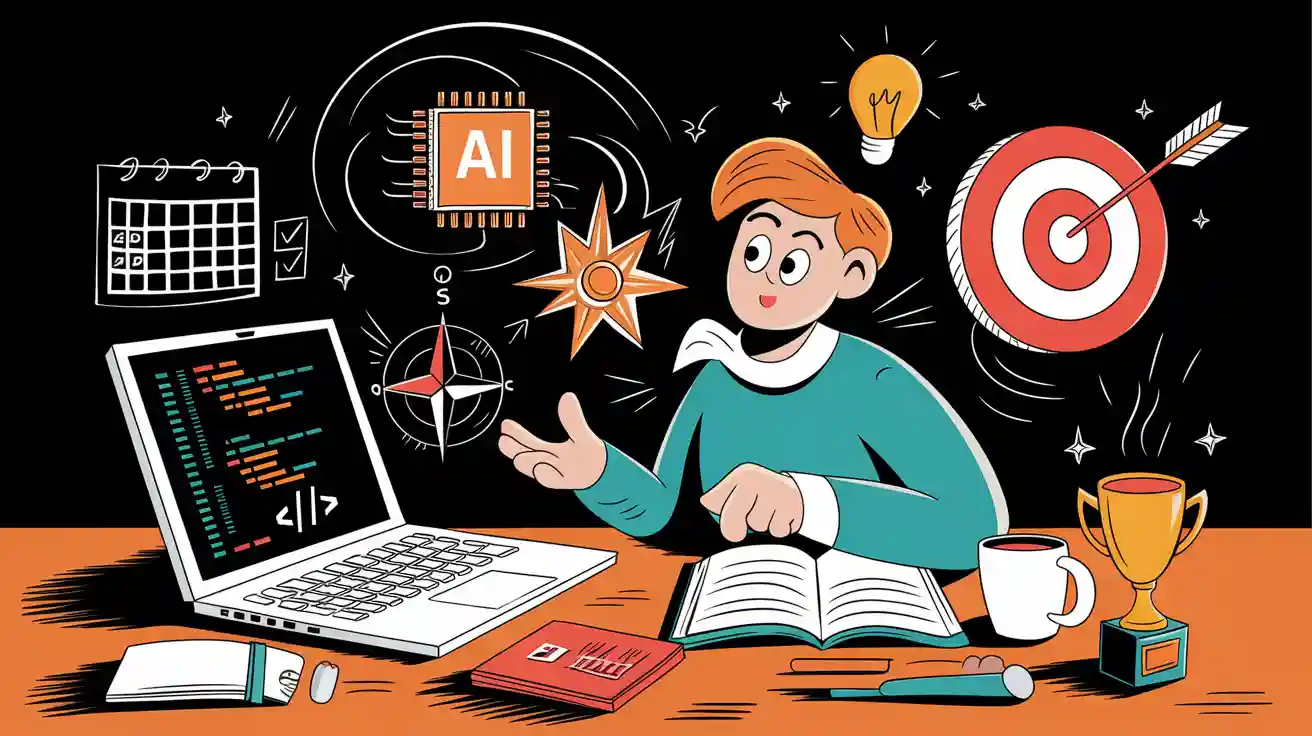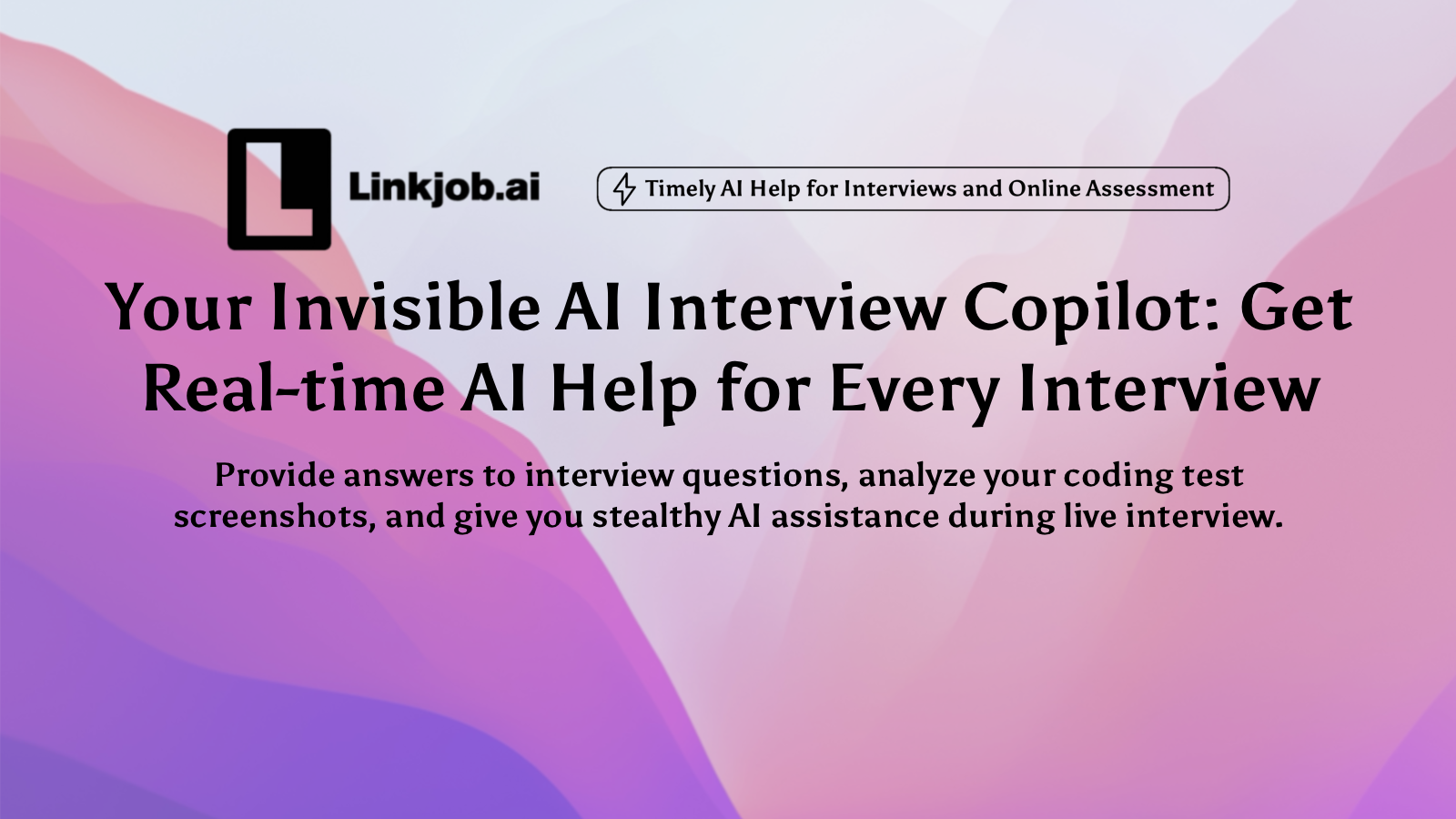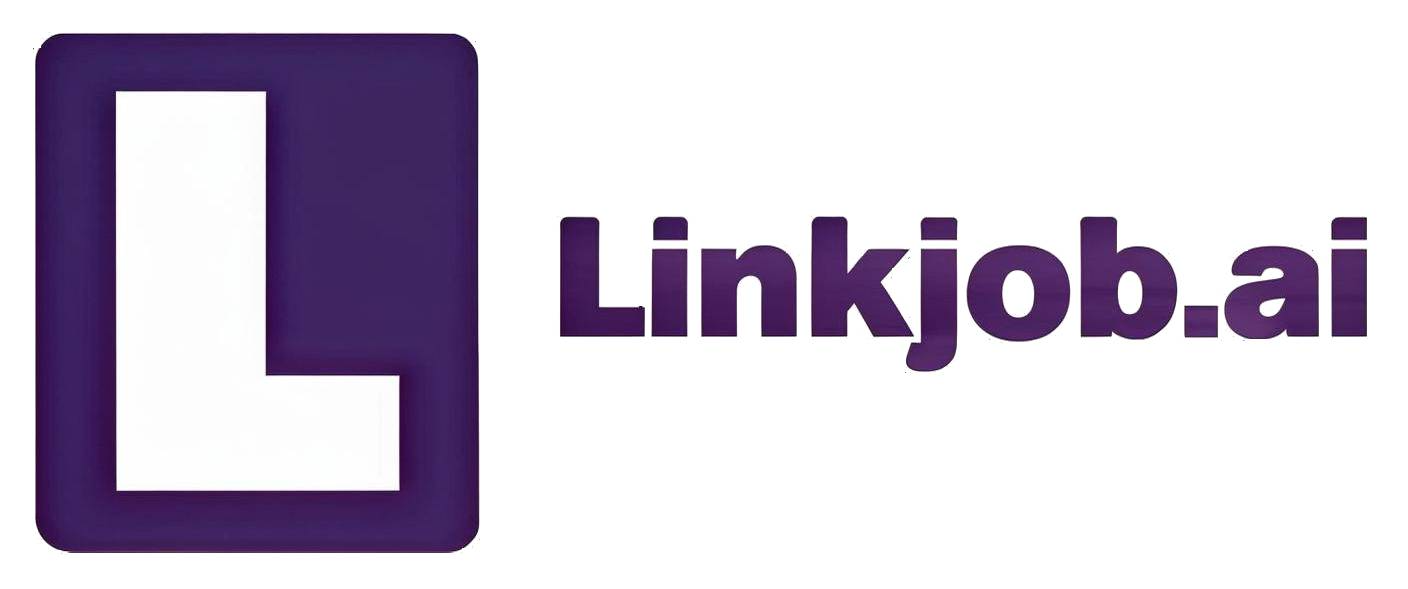How I Practiced Anthropic Codesignal and Passed the Interview

The Anthropic CodeSignal assessment follows a level-based format. There are four levels in total, and each level must be completed before moving on to the next. This makes the test somewhat more challenging. That is why I wanted to practice extensively before the interview and also gather experiences from other candidates.
I’m really grateful to Linkjob.ai for helping me pass my interview, which is why I’m sharing my interview preparation experience here. Having an undetectable AI interview copilot for OA indeed provides a significant edge.
Challenges with the Anthropic CodeSignal Assessment
Real Experiences on the Anthropic CodeSignal Assessment
From what I found in candidate reports and forums, the CodeSignal assessment for Anthropic is a high pressure test that requires fast and accurate coding. One candidate shared that the challenge involved implementing a series of API operations on an in memory database, split into four levels of increasing difficulty within 90 minutes. The focus was clearly on speed rather than code elegance because the interviewers mainly cared about the score.
Another candidate mentioned that they got stuck on the fourth level just two minutes before finishing which led to automatic disqualification. On Reddit, a user described scoring one hundred percent on the first three levels but only seventy five percent on the last one, ending with a total score of five hundred.
These real life experiences showed me how critical it is to practice under timed conditions and develop a strategy to complete all four levels efficiently. The pressure is not just about solving problems but managing time and stress which became a key part of my preparation.
Time Management
Time always feels tight during the CodeSignal Anthropic assessment. I learned to manage it like this:
I move quickly through the first two easier questions in the CodeSignal general coding framework as warm-ups.
Most of my time is reserved for the last two questions, which are harder and require more thought.
Before coding, I plan my steps and sometimes write out pseudocode.
I test my code as I go to catch mistakes early.
The focus is on getting a working solution first, then improving it if time allows.
Problem-Solving Focus
CodeSignal Anthropic practice can feel challenging, especially when unexpected questions come up. What helped was practicing real problems under simulated test conditions and reviewing mistakes after each session. This approach helped me notice patterns and improve steadily.
I practiced coding on LeetCode.
I reviewed data structures and algorithms.
I did mock interviews with friends.
I reflected after each practice to see where I could do better.

Anthropic Codesignal Interview Process
Recruiter Phone Screen
Before I touched a single line of code, I had a call with the recruiter. This stage was all about mutual understanding. They asked about my background, projects, and what I knew about Anthropic. Showing genuine enthusiasm for the company and the role made a stronger impression than simply reciting my resume.
Codesignal Online Assessment (OA)
This was the most time-pressured part of the process. In 90 minutes, I had to solve one coding challenge split into four escalating levels. Each level got harder, and I could only move to the next if I passed all the tests for the current one. The focus was on speed and accuracy rather than perfectly elegant code. I practiced Anthropic-style problems every day until I could reliably finish all levels within the time limit. To prepare for my CodeSignal assessment, I also learned the specific usage details on their official website.
Hiring Manager Phone Interview
After passing the OA, I had a call with the hiring manager. This round focused on discussing my past projects and reviewing sample code on the spot, identifying issues, and explaining my reasoning. I had practiced quickly reading and understanding unfamiliar code, which helped me stay composed.
Virtual Onsite Technical Interviews
This part consisted of several rounds, each lasting about an hour. The first was a coding round on the Codesignal platform. The second was a system design session, where I used an online diagramming tool to present an architecture and explain my design decisions. The final round was a role-specific coding challenge. Clearly explaining trade-offs and reasoning mattered just as much as getting the right answer.
Behavioral and Culture Fit Interviews
The last stage was all about soft skills, values, and motivation. There was no coding here, but it was one of the most challenging parts to prepare for. I had to share my decision-making process, how I deal with uncertainty, and why I believe in Anthropic’s mission. By aligning my answers with the company’s values and drawing from real experiences, I was able to show my fit beyond technical skills.
Building a Anthropic Codesignal Test Winning Routine
Consistent Practice
I set aside a specific time every day for my codesignal anthropic practice. Some days, I worked on easy problems to warm up. Other days, I tackled harder questions or tried mock interviews. I mixed things up to keep it interesting and to cover all the skills I needed.
Using AI-powered tools made my practice sessions much more effective. For example, I used Linkjob to run mock interviews. It felt like talking to a real interviewer. The AI asked me questions, listened to my answers, and even followed up with new questions based on what I said. This helped me think on my feet and get used to the pressure of real interviews.
Feedback and Review
Practice alone wasn’t enough. I needed to know what I was doing right and where I was making mistakes. After each session, I reviewed my answers and wrote down any errors in a notebook. Looking back at my mistakes helped me understand the problems better and remember the solutions longer.
Here’s how reviewing my mistakes improved my performance:
I gained a deeper understanding of the concepts.
I got better at solving problems by learning from what went wrong.
I remembered solutions longer because I reflected and corrected my errors.
I kept an error log and reviewed it before each new session.
Having a growth mindset made a big difference. Instead of feeling bad about mistakes, I saw them as chances to learn. This kept me motivated.
Adapting to Challenges
No matter how much I practiced, I still faced surprises during interviews. Sometimes, I got stuck on a tough question or lost my train of thought. That’s when real-time support became a game changer. the most suitable for CodeSignal tests is of course Linkjob's AI screenshot automatic analysis of code tests, which then returns the thought process and answers. It's really quite helpful when encountering more difficult problems.

Linkjob AI worked great and I got through my interview without a hitch. It’s also undetectable, I used it and didn't trigger any CodeSignal detection.
Surprises and Lessons Learned from Anthropic Codesignal Assessment
Unexpected Insights
When I started my journey with codesignal anthropic practice, I thought technical skills would be my biggest challenge. I quickly realized that adaptability mattered just as much.
Overcoming Pain Points
Here’s a quick table showing how real-time support helped me:
Features | How Linkjob AI Helped |
|---|---|
Live screenshot | The AI sees the coding problem displayed on my screen and provides an explanation along with the code solution. |
Invisibility | The AI is invisible to both the platform and the interviewer, and only I can see it. |
FAQ
How often should I practice anthropic codesignal problems?
I practice every day, even if it’s just for 20 minutes. Consistency helps me remember what I learn and keeps my skills sharp. If I miss a day, I try to make it up later.
What do I do if I get stuck on a problem?
CodeSignal requires screen sharing, so many AI tools become ineffective. This is also where Linkjob.ai excels; it remains completely undetectable even during screen sharing, so you can confidently use AI assistance.
What if I don’t have much time to prepare?
I focus on quality over quantity.
I pick one or two problems each day.
Even short, focused practice sessions help me improve.
See Also
How to Use Technology to Cheat on CodeSignal Proctored Exams
My 2025 Anthropic SWE Interview Experience and Questions
Anthropic Coding Interview: My 2026 Question Bank Collection
How I Navigated the Visa CodeSignal Assessment and What I Learned
My Journey Through Capital One CodeSignal Questions: What I Learned

